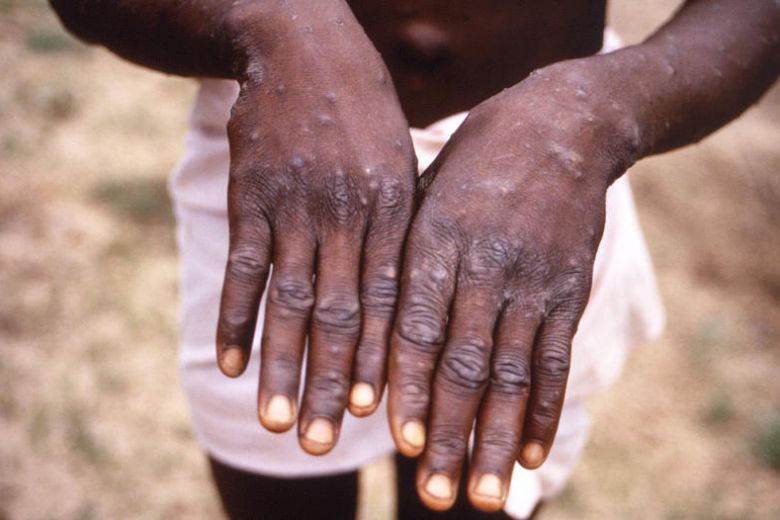Monkeypox patient in stable condition and recovering
Sign up now: Get ST's newsletters delivered to your inbox

The Ministry of Health has confirmed one imported case of monkeypox infection in Singapore, involving a Nigerian national who arrived last month for a workshop.
PHOTO: CDC/BRIAN W.J. MAHY
SINGAPORE - The Nigerian man diagnosed with the first case of monkeypox here remains in a stable condition and without a fever, said the National Centre for Infectious Diseases (NCID).
Professor Leo Yee Sin, the NCID's executive director, said his rash is also progressively healing and he will be discharged once he is no longer infectious.
There were 23 people who had close contact with the man. One left soon after for Nigeria before the infection was detected.
The others have been closely monitored but have not displayed symptoms of monkeypox, said the Ministry of Health (MOH) on Tuesday (May 21).
It added that 18 of them completed their quarantine on Tuesday after being monitored for the maximum incubation period of 21 days from their last date of exposure to the patient.
The quarantine periods for the others vary, with the last person scheduled to be released on May 28.
The 23 comprise 18 participants and trainers who attended the same workshop as the first patient, one staff member at the workshop venue and four hotel employees who had close contact with him.
Monkeypox is a rare viral disease that occurs mainly near tropical rainforests in remote parts of central and west Africa. It is primarily transmitted to humans from wild animals such as rodents and primates.
Common symptoms are a fever, headache, muscle ache, backache, swollen lymph nodes and skin rash.
The patient came to Singapore on April 28 for a workshop and started showing symptoms two days later.
He isolated himself in his hotel room until a friend convinced him to go to Tan Tock Seng Hospital on May 7. He was transferred to an isolation room at the NCID on the same day, said Prof Leo.
It took about 30 hours to diagnose the patient from the time he arrived by ambulance at the hospital, she added.
The patient told the authorities that he may have contracted the disease after eating bush meat at a wedding in Nigeria on April 21.
A multi-state monkeypox outbreak has been ongoing in Nigeria since September 2017, with 328 cases and seven deaths there as of January this year.
The disease is typically self-limiting, meaning that the body can mount defence mechanisms to fight the infection and resolve it within two to three weeks, said Prof Leo.
Associate Professor Lim Poh Lian, a senior consultant at NCID, said that because monkeypox is an emerging infectious disease, there is no vaccine or anti-viral that is known to be effective.
The MOH notified the World Health Organisation (WHO) about the monkeypox case on May 9.
The WHO said the risk of monkeypox spreading here is low, given that the patient has been isolated and others placed in quarantine.
The first reported cases of the disease outside the African continent were in the United States in 2003.
Most of the patients were reported to have had close contact with pet prairie dogs that were infected by imported African rodents.
Three cases were reported in Britain and one in Israel last year.


